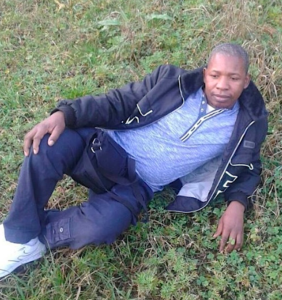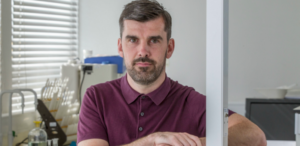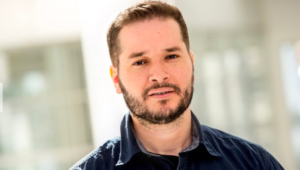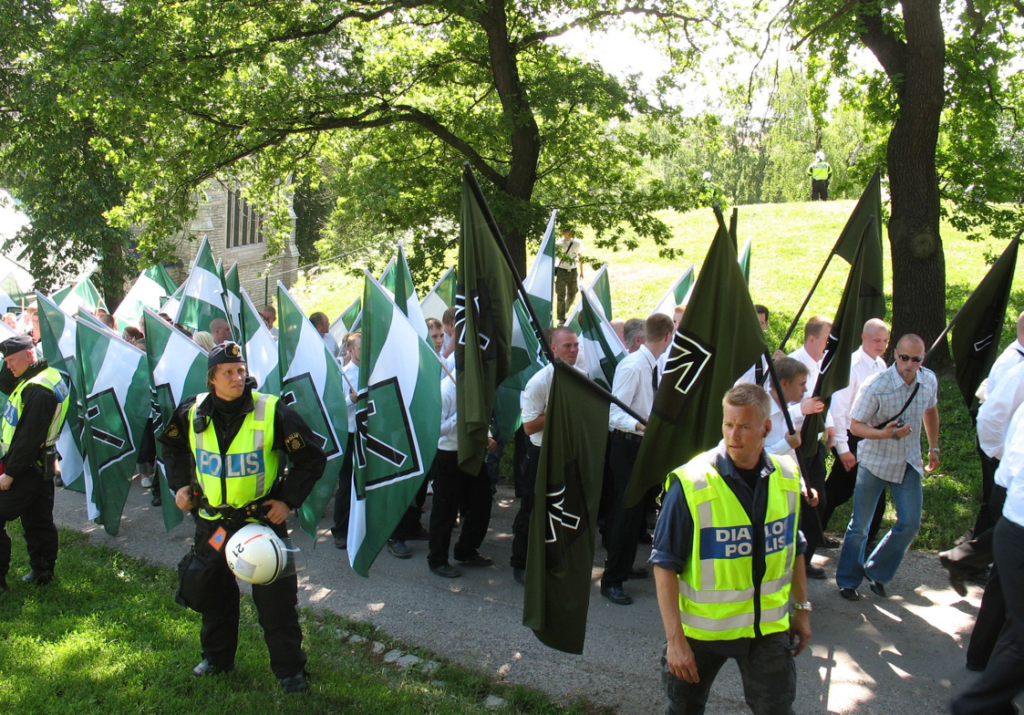If anybody thought that the defeat of Hitler’s Nazis would bring an end to anti-Semitism in Europe, they were wrong. Just as many African Europeans face colour prejudice and Roma and Sinti people suffer discrimination, a great many Jews still face anti-Semitism on a regular basis. In the past, the Jews practised ‘usury’ when Christians wouldn’t, but that just means that they recognised the need to charge ‘rent’ on money loaned while Christians (and Muslims) considered it a sin. Now, of course, the banks and finance houses do it and it is a practice that makes it possible to borrow money. One could say it is what make the global economy work. If you are buying a house, and unless you are rolling in cash, you probably go to a reputable financial institution to make the transaction possible. Bankers are not burned at the stake, nor murdered (as the Jews were following the coronation of England’s much- lauded Richard the Lionheart on 3 September 1189, some of them in the palace as they handed over their coronation gifts to the king). Hundreds were killed because the king was a religious fanatic who hated anyone who didn’t share his views..

Jews remained under suspicion in the decades that followed and in 1290, whilst actually in France and broke, England’s Edward 1, who was popularly known as ‘Longshanks’ and a thoroughly awful individual, issued an edict expelling all Jews from England. Mainly, he wanted their money and valuables to help pay his debts, so not much religious fervour there.
It happened all over Europe; religious bigotry was used as an excuse to remove or murder anyone Jewish. On the aptly named Steep Hill in the city of Lincoln, England, stands a beautiful 12th century building still known as the Jew’s House, formerly Aaron the Jew’s House, which was part of the thriving Jewish community in Lincoln until the expulsions of 1290. Aaron himself was a financier and probably the wealthiest man in England at the time. Oddly, he specialised in funding the building of monasteries and religious buildings, including at least nine Cistercian abbeys. He clearly had no religious prejudices where business was concerned. Today his former house is a restaurant and well worth a visit for its historic beauty and interest. It was clear to Europe’s Jews throughout mediaeval times that the Christians didn’t like them, but they did need them: usury – lending money with interest – is an essential element of any economy, whatever the Christians believed. It is also against Sharia law, of course, where it is called ‘riba’, which means increase, so other ways have been found by Islamic banks to make loans that are ‘Sharia-compliant’. It must have been worth the Jews’ while in Mediaeval times to continue to live in Europe and suffer the hatred they faced from neighbours. Where else could they go anyway?
In Shakespeare’s play, The Merchant of Venice, the Jewish moneylender, Shylock, expresses his own puzzlement at the attitudes of the Christians to his people. “Signior Antonio,” he says to the man who is – for want of a better word – the ‘hero’ of the play, “many a time and oft/ In the Rialto you have rated me/ About my moneys and my usances:/ Still have I borne it with a patient shrug,/ For sufferance is the badge of all our tribe./ You call me misbeliever, cut-throat dog,/ And spit upon my Jewish gaberdine,/ And all for the use of that which is my own.”


The play is based rather more on Antonio’s hatred and contempt for Jews, whilst still relying on their financial services, than it is on Shylock’s demand for “A pound of flesh, to be by him cut off/ Nearest the merchant’s heart” for defaulting on the debt. He doesn’t get it, of course, and to please a 16th century audience, Shylock is compelled at the end to accept baptism into the Christian faith as a justly punished villain. But Shylock’s description of his ill treatment at the hands of the play’s ‘good’ merchants suggests that Shakespeare himself had some sympathy for the plight of Jews. Once, in conversation with the British actor-turned-MEP, Michael Cashman, now in the UK’s House of Lords, he told me how, while playing Antonio he had, on stage, worn gloves to shake hands with Shylock while sealing the deal, and then ostentatiously wiped his gloved hand afterwards, all to convey the character’s contempt for Jews and his belief that they were in some way ‘unclean’.

Shylock mentioning how Antonio had, on previous occasions, spat at him again makes me suspect Shakespeare sympathised. Given that background, Shylock’s determination to see Antonio dead is hardly surprising. Antonio is clearly a racist and not at all a nice man, hero or not, even if he is supposed to be doing it to help a friend.
KIND? CONSIDERATE? INTOLERANT?
Think it’s all OK now that we’re more civilised and urbane? Think again. I have no idea why, but anti-Semitism is alive and well, especially in France, it seems. There have, over the years, been various incidents of Jewish gravestones being spray-painted with swastikas, but I suspect the perpetrators are not genuine Nazis, just rather dim, unpleasant youths who would spray pictures of flowers instead if they thought they would cause more offence. This sort of brainless thuggery is never going to be expunged from society, I fear. However, the case of Sarah Halimi and her killer gives cause for concern. Ms. Halimi was a 65-year-old Orthodox Jewish woman, thrown from the balcony of her third-floor Paris apartment in the Belleville area by her neighbour, 27-year-old Kobili Traoré, who chanted verses from the Koran while doing so, shouting “Allahu Akbar” – God is Great – in Arabic as she fell to her death. He has admitted the killing, which took place in 2017, but is not to be put on trial.
Traoré is currently in a specialised unit of a psychiatric hospital and looks likely to stay there for a while. France’s highest courts, including the Cour de Cassation, have confirmed that he will not stand trial because he was going through a “delirious episode”, the result of years of cannabis abuse, and was therefore not responsible for his actions. The victim’s family have argued that the same rules should apply as if he’d been drunk at the time.


After all, he took cannabis of his own volition and, incidentally, in contravention of the Qur’an, which is fairly unforgiving on the subject of intoxication. Chapter 5, verse 90 states that: “Intoxicants, gambling, idolatry, and divining arrows are an abomination of Satan’s handiwork. So avoid that so that you may be successful.” You’ll note that it doesn’t forbid alcohol, it is not “haram” (forbidden), although it and any form of intoxication should be avoided. However, pious Muslims who even avoid prescribed medicines or cosmetics containing alcohol could be accused of pride, which is considered an unforgivable sin. On the other hand, the Qur’an warns against prayer while under the influence of anything that affects the brain. Clearly, while Traoré was muttering Qur’anic verses and simultaneously killing Sarah Halimi, he was under the influence of cannabis, so if nothing else he was committing a sin. After all, Islam, Judaism and Christianity all spring from the same root, making them what are called ‘Abrahamic’ faiths. In the second Sura of the Qur’an it is written: “Surely they that believe, and those of Jewry, and the Christians, and those Sabaeans, whoso believe in God and the Last Day, and work righteousness – their wage awaits them with the Lord, and no fear shall be on them neither shall they sorrow.” The Sabaeans, by the way, were a Semitic group who founded the city of Saba. They were Arabian but their faith doesn’t quite align with other major Abrahamic faiths, although it seems to have been respected by Muslims.
Obviously, the fact that Traoré was committing a sin against Sharia law is no consolation to the victim’s family and is a matter to be taken up with his Imam. The victim’s sister has pointed out that if Traoré had merely been drunk he would have faced trial for murder. The lawyers of the victim’s family have drawn attention to the fact that Traoré took drugs of his own volition. No-one forced him to get high and off his head. That argument has been repeated by others in France, by no means all of them Jewish. On 25 April this year, huge crowds gathered on the Trocadero Plaza, just in from of the Eiffel Tower, to denounce the decision of France’s highest court that Traoré could not be held criminally responsible and that he could not therefore go on trial. They had been urged to turn up by a number of Jewish organisations.
The Cour de Cassation admitted that Traoré was clearly motivated by anti-Semitism, but it also stated that if someone committed a crime whilst in what it called a “delirious state” they cannot be sent for trial, a decision that has caused outrage across France, despite their agreement that his mental state had been caused by his persistent and long-term use of cannabis. It’s perhaps not quite so shocking as it may first appear. Under French law, people cannot be held criminally responsible for any actions they commit having fully lost their judgement or self-control due to a psychiatric disorder. Traoré may be in a psychiatric hospital but is he really mad? President Emmanuel Macron is not convinced. He told Le Figaro newspaper that “Deciding to take narcotics and then ‘going mad’ should not, in my view, remove your criminal responsibility.” Macron also used the interview to express his support for the victim’s family, while France’s Justice Minister, Eric Dupond-Moretti has said that he plans to plug what he called ‘a legal vacuum’ in French law over the voluntary use of narcotics and their consequences.

GETTING LOW, GETTING HIGH
Drugs remain a major issue in Europe, not just in France. According to a report by the Organisation in Europe for Cooperation and Development (OECD) there is heavy use of narcotic substances. “Almost a third of adults in the European Union aged 15-64, or around 97 million people, have used illicit drugs at some point in their lives, with the experience of drug use being more frequently reported by men than women.” Cannabis remains the go-to drug of choice but there are others, the report says: “some have also used cocaine, ecstasy (MDMA), amphetamines, and other drugs, (according to the European Monitoring Centre for Drugs and Drug Addiction or EMCDDA, 2020). The use of illicit drugs, particularly among people who use them regularly and heavily, is associated with higher risks of cardiovascular diseases, mental health problems, accidents, as well as infectious diseases such as HIV when the drug is injected. Illicit drug use is a major cause of preventable mortality among young people in Europe.” Ask the people of Dundee, Scotland’s fourth largest city with a population of around 150,000. It also has the unenviable reputation of being “the drug death capital of Europe”. In 2017 there were 57 drug-related deaths: more than one a week. It’s the worst record in Europe. However, it doesn’t seem to be the traditional drugs that are killing off the population; it’s a mixture of alcohol and benzodiazepines, a group of especially strong tranquilizers, often prescribed by doctors for things like insomnia, anxiety and panic attacks. But they’re also available on street corners and in pubs and clubs. Dundee is a university city, after all, and not far from the much larger university cities of Edinburgh and Glasgow, so there is no shortage of young potential customers to target. ‘Benzos’, as they’re known, accounted for 1 in 2 of the deaths in 2017.


These drugs, although they’re tranquilizers like diazepam (also known as Valium) have been getting stronger. In an article in Vice UK, Doctor Andrew McAuley at Glasgow Caledonian University said that after a phase in which Phanezepam was the drug of choice, it has now been replaced by Etizolam, which he described as “a really bad drug, much stronger, with a much shorter half-life.” It was implicated in 229 deaths in Scotland in 2017. McAuley told Vice UK that “people simply don’t know what they’re taking. We’ve seen (from police seizures) that pills share the same, or similar, branding to diazepam tablets, something that’s pretty much ubiquitous across the country.” It is reported to be “ludicrously easy” to get hold of the pills. The dealers and pushers approach people in the middle of the day in the town centre, it’s claimed, while Etizolam can be bought for £1 (€1.15) per tablet, sometimes less. None of this in any way excuses violence against people of different ethnic origin or faith, however ‘high’ the perpetrator.
DWINDLING NUMBERS, DWINDLING EFFECT
For several decades across Europe the Jewish population has been in decline, and according to the European Union Agency for Fundamental Rights (FRA), four out of ten young Jewish people aged between 16 and 34 are considering emigrating. They still feel unwelcome, even after the defeat of the monstrous Nazis with their deadly anti-Semitism. Just over 80% of those surveyed by the FRA report that anti-Semitism is a problem in their country and believe it has got worse over the last five years. The Internet is a popular place for those who want to discredit, insult or threaten Jews, but they say it’s bad in the street, too, with many choosing not to wear any symbols of their faith. A shocking 4 % of the young Jewish Europeans who took part in the survey said they had experienced “a physical antisemitic attack in the previous year, and about half of these were not reported to the police or any other authority.” Many of these incidents were perpetrated by a ‘teenager or group of teenagers,’ or a ‘colleague from work or school/college’.
According to the report, 56% of those surveyed were at school or university during the preceding year and there was one finding that resonates unpleasantly with the killing of Sarah Halimi: “in many cases, antisemitism has a distinctly ideological flavour: young Jews report that one third of all cases of antisemitic harassment, and over half of the cases of antisemitic violence they have experienced in the past year, were perpetrated by ‘someone with a Muslim extremist view’.” The survey was the second in a series and focused on the experiences and perceptions of antisemitism among young Jews living in twelve EU Member States – Austria, Belgium, Denmark, France, Germany, Hungary, Italy, the Netherlands, Poland, Spain, Sweden, and the United Kingdom. It was the largest study ever conducted among Jews in Europe and was undertaken by a consortium of the UK-based Institute for Jewish Policy Research and the international research agency, Ipsos.

Michael O’Flaherty, Director of the FRA writes in a foreword to the survey that: “The young Jews surveyed indicated encountering harassment at higher rates than older generations: 44 % say they were targeted at least once in the year before the survey. Yet startlingly few report such incidents, with 80 % opting not to do so. To protect themselves, many avoid wearing or carrying items that may identify them as Jewish.” And yet to offer unprovoked violence to anyone based on their Jewishness is clearly against the Qur’an and against Sharia Law. What we are witnessing would seem to be simple tribalism.
The question of “why” is something that has disturbed EU lawmakers, who have tried to outlaw anti-Semitism. The Public condoning, gross trivialisation or denial of the Holocaust are illegal. In particular, the European Commission’s website states that: “negationism can be considered as a specific manifestation of antisemitism since it both constitutes a denial of the Holocaust, and an incitement to hatred against the Jewish community. Denying crimes against humanity and disputing the existence of clearly established historical events do not constitute scientific or historical research and shall be considered incitement to hatred towards Jews, as laid down by case-law of the European Court for Human Rights.”

Furthermore, Commission President Ursula von der Leyen wrote: “Antisemitism is a poison for our community. It is up to all to fight it, to prevent it and to eradicate it. The fight against antisemitism is as much for every other part of our community as it is for Jewish people. It is one which must be led at local, regional, national and European level. We must all do our part. The Jewish community is not alone.” Unfortunately, it sometimes has reason to feel alone.
ANTI-SEMITISM IS A DIRTY WORD – LET’S IGNORE IT
There are plenty of examples of perpetrators being let off with very light sentences for acts that could only realistically be recorded as ‘anti-Semitic’. In the German town of Wuppertal in 2014, for example, three Palestinians were given suspended sentences for attempting to burn down a synagogue. The court decided the act was ‘anti-Israeli’ but not ‘anti-Semitic’. In December 2017, three young people threw a Molotov cocktail at a synagogue in Gothenburg, causing twenty or so young people to seek safety in the cellar, but although a Gaza-born Palestinian was told he would be deported after a 2-year prison term for committing the attack, this part of his sentence was overturned on appeal because it “could put him in danger from Israel”. Also in Sweden, threats from neo-Nazis caused the Jewish community of Umea to be dissolved, a unique result in an EU country, and the city of Malmö is considered “the capital of European anti-Semitism”, according to the Jerusalem Post.

In the Netherlands, a visit by schoolchildren to the Dutch parliament was marred by a comment from a Muslim member of the municipal council chamber, who described the students as “Zionist terrorists in training” and “future child murderers and occupiers”. A case brought against the man, Abdoe Khoulani, was dismissed because, the judge said, “his remarks did not constitute incitement to hate”. It seems as if the EU, whilst well-meaning, needs to define the various terms in play here more precisely.
Anti-Semitism is an issue that simply won’t go away. The FRA report says that 65% of French Jews see it as a problem, way ahead of the other countries surveyed. 43% of Germans and Belgians also see anti-Semitism as an issue. I used to take a tram ride through Strasbourg from my hotel, near the station, to the European Parliament or the Council of Europe, my journey taking me past a synagogue that now requires concrete barriers to protect it from car bombs, while barbed wire is much in evidence, just as it once was at the Nazi death camps. France was identified in the FRA survey as having the biggest problem with anti-Semitism. But the report also highlights what it calls “vicious commentary” on the internet, in the media and at school and work. The day the report was published, Italian police reported having to investigate the thefts of 20 memorial plaques dedicated to a Jewish family murdered in the Holocaust.
A faster response to hate posts on the internet may help and in April the European Parliament voted through a report that introduces, among other things, the ‘one-hour rule’, which demands that the most dangerous content is removed as soon as possible after publication.

It’s the proposal of Polish MEP Patryk Jaki of the European Conservatives and Reformers group, who writes that: “Today, the Internet has become the main haven for terrorists. This phenomenon even intensified during the pandemic lockdown. It can be seen especially in the example of social media – for example, in 2020 Facebook removed over 43-million posts containing terrorist content, which was twice as many as the year before.” Of course, it was not purely to deal with anti-Semitism that the regulation was formulated, it was to tackle terrorist cells, but it may help indirectly with anti-Semitism. Incidentally, Poland comes fourth in the FRA survey of places where Jewish people fear anti-Semitism, with 39% saying they do. We cannot forget two facts, however: Poland is staunchly both Christian and very conservative. It was also where Auschwitz murdered many thousands of Jews, along with Roma and Sinti people, homosexuals, Jehovah’s Witnesses and anyone out of the mainstream. 75 years after the Holocaust the fears of today’s Jewish population are an awful indictment of European intolerance and prejudice.
Overall, nine in 10 (89 %) respondents in the 2018 FRA survey feel that antisemitism increased in their country in the five years preceding the survey; more than 85 % consider it to be a serious problem. Respondents tend to rate antisemitism as the biggest social or political problem where they live. They assess antisemitism as being most problematic on the internet and on social media (89 %), followed by public spaces (73 %), media (71 %) and in political life (70 %). Being Jewish does not necessarily mean being very religious. Only one in seven European Jews define themselves as regular attendees at the synagogue. According to the FRA report, however, in most cases, the respondents’ Jewishness is important to them. Given the opportunity to self-assess the strength of their Jewish identities on a scale of one to ten (where 1 = weak and 10 = strong), over half scored 9 or 10, and four in five scored seven or more. Young Jewish Europeans did not differ from 35-59-year-olds or those aged 60-plus in this regard – the scores for all three groups were strikingly similar, says the report.

It seems that their fears are well-founded, with anti-Semitism on the increase across the entire EU. Could this mean a return of Nazi ideology? Nobody really knows, but it seems to be cropping up in the most unlikely places. Time Magazine, for instance, reports an incident in the seemingly sleepy mediaeval Swedish town of Lund, with its cobbled street and ancient buildings, where an elderly Jewish professor returned to her car after a working day to find a threat written on a piece of paper and slipped under the windscreen wiper. It called her “a filthy Jewish swine” and bore the logo of Sweden’s home-grown neo-Nazi group, the Nordic Resistance Movement. She lived in fear for days, careful to scan the street before venturing out of her home. There were more threatening notes to follow and eventually someone broke into her home and set fire to it. Fortunately, she was out at the time, although the fire destroyed her living room and dining room, together with the writings of her long-dead mother, detailing her experiences in a Nazi concentration camp. The professor had to go for therapy to recover, says Time. It is unknown how had she attracted such hate. Had one of her students, perhaps, been a member of this Nazi gang and been given low marks by her? Could this have been an act of personal revenge? Perhaps, but hatred of Jews and Judaism is a continent-wide phenomenon that the European Council, Commission and Parliament have been trying to address. But a worryingly large proportion of Europeans seem predisposed to hate ‘others’ – those of a different, race, ethnicity or religious identity, with Jewish people the most likely to be targeted.
RACISM THRIVES
Many of those questioned about anti-Semitic acts say they are reacting to the policies and actions of Israel. They do not, however, attack citizens of, say, Russia, Iran or Turkey, despite reports of abuses by those countries. It seems that Jews are especially singled out for attack with their homeland – even if they have never visited it – being blamed as the cause. But it doesn’t wash: the attacks on Jewish people are not the result of Binyamin Netanyahu’s actions, now or in the past. They makes no sense. I am reminded of the famous words of Shylock in Shakespeare’s The Merchant of Venice, when he points out to Salerio, one of Antonio’s friends, the similarities between Jew and gentile: “If you prick us, do we not bleed? If you/ tickle us, do we not laugh? If you poison us, do we/ not die? And if you wrong us, shall we not revenge? If/ we are like you in the rest, we will resemble you in that.” The victims of today’s anti-Semitic attacks have little chance of “revenge”, of getting their own back, and not just because they’re tricked by a crafty lawyer, as Shylock is.

But there are differences, of course, that Shylock fails to mention. Differences in religious practice, for instance. With the start of Passover in March – the commemoration of freedom from slavery under Egypt’s Pharaohs, many European Jews found it hard to obtain truly kosher meat, which requires animals to be killed with a slash to the throat with a sharp knife, incising the trachea and oesophagus and without prior stunning, a practice banned in some European countries. The argument over whether or not ritual killing without stunning the animal first constitutes cruelty to animals is continuing. But these are points that mainly concern more pious Jews and Muslims who want to observe all the ordinances of their faiths. The continuing attacks on Jews and on synagogues is another matter but also a major issue of concern for all Europeans. There is an interesting line in the last fantasy novel to be written by the late Terry Pratchet, “Raising Steam”, which concerns inter-racial conflict and in which the fictional head of police, Commander Sam Vimes, says: “That’s the trouble, you see. When you’ve had hatred on your tongue for such a long time, you don’t know how to spit it out.” The ruling that Traoré cannot stand trial for the killing of Sarah Halimi has drawn criticism from a wide range of people, including the French President, Emmanuel Macron, who would like to see a change in the law.
It may not be the end of the matter. Sarah Halimi’s sister, Esther Lekover is seeking justice through Israeli criminal law, which can apply to anti-Semitic crimes committed in other countries. But that would require the extradition of Traoré, and France does not expedite its citizens. Esther Lekover’s lawyers said in a statement that they “deplore being forced to expedite this procedure, but they cannot accept a denial of justice which offends reason and fairness far beyond the Jewish community of France.” Their action, however, whilst drawing attention to the decision not to try the self-confessed killer is unlikely to set him before a court. “If you wrong us, shall we not revenge?” asks Shylock. Apparently not, whatever Macron and the rest of the EU may say.

